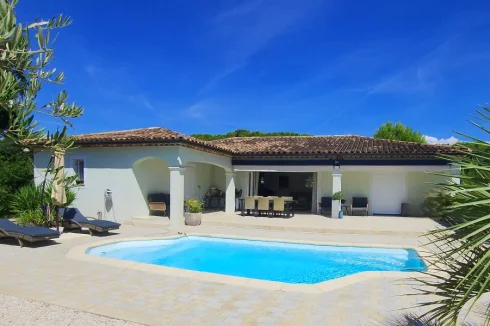Occitanie? Hauts de France? Grand Est?
Wednesday 03 August 2016
The names of the new administrative regions of France have now been chosen, but not without significant controversy and compromise.
The reorganisation was in the teeth of most regional politicians, who not surprisingly wished to keep their fiefdoms, with some taking the issue as far as the Constitutional Council, without success.
There has been similar controversy over the names to be adopted for the merged regions.
There is no change to the regions of Brittany, Pays de la Loire, Ile-de-France, Provence-Alpes-Côte d’Azur, and Corsica, whose names and boundaries remain the same.
The boundaries of the Centre region also remained unchanged, although it has adopted the name of Centre-Val de Loire, a name politicians in the region have been seeking to get adopted for decades, seeking to grab some of the shine of the 'Loire' to their region, much to the annoyance of the adjoining Pays de la Loire region. The latter itself remains prey to a possible future merger with Brittany.
However, elsewhere regions have merged together, with the consequential need to then find a new name and identity.
That was easily achieved in the merger of Lower Normandy and Upper Normandy, by in each case dropping the prefix.
Elsewhere it was a little more complicated, with historic names and strong, distinct cultural identities at stake.
No more so was this the case than in the merger of the regions of Alsace, Champagne-Ardenne and Lorraine.
The Alsatians, in particular, reacted vehemently to the merger, and there were significant street protests against it.
In the end the merger went ahead, with the geographic badge of 'Grand Est' chosen by the population, from a shortlist of Rhin-Champagne, Acalie, Nouvelle Austrasie, and Grand Est.
There was similar consternation with the merger of Languedoc-Roussillon and the Midi-Pyrenees, two huge regions in themselves, but also strongly competitive and often antagonistic towards the other.
Once again, the vox pop spoke, selecting the name of 'Occitanie' from a short-list of Languedoc, Languedoc-Pyrénées, Occitanie, Occitanie-Pays Catalan and Pyrénées-Méditerranée.
The name itself is a derivative of the language of Occitan, one of several regional languages used in France until the French Revolution, when the French language was imposed.
The choice of the name has not endeared itself to those with Catalan sympathies in the department of Pyrénées-Orientales adjoining Spain.
In order to pacify the discontent, during the debate on the passage of the name in the regional assembly it was decided to adopt 'Pyrénées-Méditerranée' as the sub-title to the regional name.
In addition, although Toulouse was chosen as the name of the regional capital, it was agreed that meetings of the regional assembly would take place in Montpellier.
Interestingly, despite the emotion that the choice of name raised amongst part of the population and politicians, out of the nearly 6 million people allowed to vote on the choice of the name only 204,000 choose to do so.
As for the remaining regions, in the merger of the regions of Aquitaine, Limousin and Poitou-Charentes, the name of 'Nouvelle-Aquitaine' was selected as the new regional name, conveniently retaining the international brand strength of 'Aquitaine'.
In the merger between Nord-Pas-de-Calais and Picardy, the popular consultation resulted in the name of 'Hauts de France' being chosen as the name for the new region, which avoided the imposition of the word 'Nord' on the Picardiens, included in the other names on offer. Nevertheless, Nord-Pas-de-Calais-Picardie will continue as a sub-title to the new name.
The merger of the regions of the already immense regions of Auvergne and Rhône-Alpes resulted in it transmuting simply to 'Auvergne-Rhône-Alpes'.
The same occurred in Bourgogne and France-Comté, which was rebaptised 'Bourgogne-France-Comté', thereby similarly avoiding any feelings of expropriation by either side.
With the newly enlarged regions having several different potential candidates for the regional capital, a number of regions have kept the peace by splitting the seat of the prefecture from the political chamber.
Thus, although Toulouse was chosen as the name of the regional capital, it was agreed that meetings of the regional assembly would take place in Montpellier.
In Bourgogne-France-Comté, whilst Besançon will be the administrative capital, the assembly will meet in Dijon.
Similarly, in Normandy, the administration will be based in Rouen and meetings of the assembly will take place in Caen.
The same principle has been adopted in most regions.

Related Reading:
Next Article: French Village at NEC Birmingham 2016
Thank you for showing an interest in our News section.
Our News section is no longer being published although our catalogue of articles remains in place.
If you found our News useful, please have a look at France Insider, our subscription based News service with in-depth analysis, or our authoritative Guides to France.
If you require advice and assistance with the purchase of French property and moving to France, then take a look at the France Insider Property Clinic.





